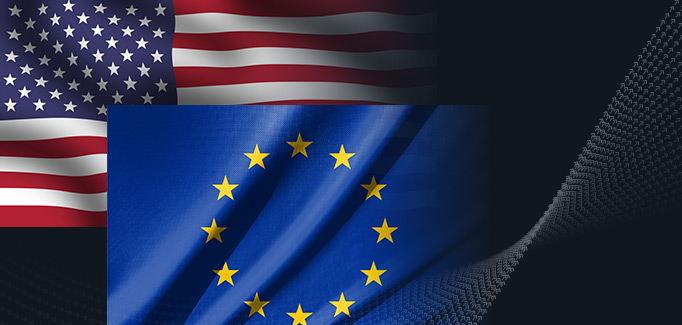Shell Games: The Lawyer’s Money Laundering Parlor Trick
April 14th, 2017

The following is part of on-going series of articles which examines the role of lawyers in facilitating money laundering. Start the series here.
Most general practice attorneys would be excited to have the representative of a wealthy potential client ask for advice on purchasing Manhattan real estate. But then the potential client is disclosed as an African minister of mines – a politician in a region and industry known for corruption – who wants to hide both his identity and the source of his income. How many attorneys do you think are willing to risk facilitating the laundering of the minister’s illicit funds and continue to advise the minister?
Global Witness has given us a good view into at least the initial reaction of 16 lawyers at 13 US law firms, and it was not pretty. Many of the lawyers suggested using anonymous companies, or “shell companies,” to hide the minister’s beneficial ownership, or using an offshore trust with an attorney acting as trustee in order to anonymize the source of the funds.
The term “shell company” generally refers to limited liability companies and other business entities with no material assets or ongoing business activities. Shell companies typically have no physical presence, no employees and no independent economic value.
The advice to establish shell companies was not illegal in and of itself. They are generally created for legitimate commercial reasons. They might be created in preparation for a cross-border merger or to create a tax-beneficial domicile for a company’s offshore operations.
The average corporate attorney has probably helped establish numerous such entities, and the largest red flag for the attorney was probably limited to the client’s questionable name choice (e.g., Enron’s JEDI LP, Chewco Investments LP and Obi-1 Holdings LLC).
However, as the US Treasury’s Financial Crimes Enforcement Network (FinCEN) stated in regard to US limited liability companies, these legal entities, “particularly when organized in [jurisdictions] which do not require reporting of information on ownership, provide an attractive vehicle for a shell company because it can be owned or managed anonymously and is inherently vulnerable to abuse.”
Take for example Mossack Fonseca’s reported role in assisting the most powerful businessman in Syria and the cousin of Syrian president Assad, Rami Makhlouf, to transfer ill-gotten proceeds. Mossack Fonseca, the target of the Panama Papers leak, is a Panamanian law firm and one of the world’s largest offshore company service providers. It built a large book of business off the recommendations of many reputable banks who advised wealthy individuals to park their money abroad.
Mossack Fonseca set up Drex Technologies, a shell company with a British Virgin Islands address, and served as its registered agent from 2000 to 2011. As VICE described it, “If Makhlouf was a bank robber, his getaway car was a company called Drex Technologies SA.” The Treasury Department designated Drex in 2008 as improperly benefiting from and aiding the public corruption of Syrian regime officials, and in July 2012 generally prohibited US persons from transacting with Drex and froze their US assets.
While Treasury made note that Makhlouf “was Drex’s shareholder, director, and beneficial owner,” Mossack Fonseca, as Drex’s registered agent, was able to avoid official censure (the EU gave it a passing mention). But MF’s role was key in shielding Makhlouf as Drex’s beneficial owner from law enforcement as further described in VICE’s prescient investigation over a year before the leaks:
- In [2014], I obtained several documents about Drex from the British Virgin Islands business-registration office. The records reveal very little—Makhlouf’s name, for example, is nowhere on them. It was only because the Syrian civil war had prompted international investigations to try to track down and freeze the assets of Makhlouf and other Assad regime bandits that the US Treasury discovered that he controlled the company and was its owner, officer, and shareholder. But by the time the Treasury Department did it was too late, as Drex had by then disappeared from the British Virgin Islands’ corporate registry.
Panama is only one of many offshore havens favored to establish shell companies for the purpose of money laundering. The Cayman Islands is another jurisdiction which has built a portion of its economy through promoting the commercial and legal benefits of offshore entities.
In 2009 President Obama called out Ugland House, an office building in the Cayman Islands that is the physical home of law firm Maples and Calder, and the paper home to almost than 19,000 registered offices of Cayman Islands businesses. While Ugland House is an interesting anecdote, it should be noted that Cayman Islands law requires firms that establish entities and offer registered office services like Maples to adhere to specific AML requirements such as verifying and keeping records on the beneficial owners of these entities.
The United States generally has no such requirement for its company service providers. The Tax Justice Network’s Financial Secrecy Index, which ranks jurisdictions according to their secrecy and the scale of their offshore financial activities, ranked the USA as third in 2015.
As Shruti Shah, vice-president of programs and operations at Transparency International, explained, “In every state in the US, you can incorporate [a limited liability company] or another legal entity and you don’t have to disclose who the beneficiary on it is.”
And this is one of several reasons why the establishment of shell companies is not just a foreign or “offshore” manifestation. In contrast to Ugland House’s 19,000 registered offices, one address in Delaware is the legal address of no fewer than 285,000 separate businesses. These range from highly reputable corporate titans to companies used to hide corruption proceeds such as those discussed in the Global Witness exposé.
Delaware is without question the first choice for establishing legal entities. While most states are equal in their anonymity, Delaware won the “race to the bottom” early and stayed there in part due to well-developed corporate case law.
But don’t ask me, ask the author of “United States, Tax Heaven — Uncle Sam Will Fight Your Taxes!” The author is Laszlo Kiss, a Romanian accountant and former operator of one of Eastern Europe’s largest offshore registry agents. Kiss promoted establishing legal entities in Delaware due to their lax rules. In 2010 he was arrested on charges of helping embezzle and launder millions through Delaware shells.
Nevada, Oregon and Wyoming were also highlighted along with Delaware by FinCEN in 2006 as four states that had company formation and reporting requirements that could attract illicit activity.
Nevada has been called the “Delaware of the West” for its business-friendly laws, which similar to Delaware permit relative anonymity for the beneficial owners of corporate entities. For example MF Corporate Services, believed to be closely linked to Mossack Fonseca by more than the initials, has registered more than 1,000 Nevada companies. MF’s local business partner in Wyoming subsequently cut ties to MF’s US office and MF Corporate Services abruptly resigned as the registered agent for 1,024 companies it administered.
FinCEN has for over a decade focused efforts on communicating with US state governments to address vulnerabilities in the state incorporation process and the lack of public disclosure and transparency regarding beneficial ownership of shell companies. But it has been an uphill battle. For example, Wyoming began requiring that registered agents who incorporate companies to keep contact information for such companies after it was criticized by FinCEN in 2006. But an audit in response to the Panama Papers concluded that that MF Corporate Services Wyoming LLC failed to comply with this basic requirement.
Congressional attempts to close the shell company “loophole” have also failed. Numerous bills introduced over the last decade requiring company formation agents to report beneficial ownership information to Federal law enforcement have been aggressively lobbied against by the American Bar Association.
The ABA’s arguments are discussed in further detail later in this series. But by fighting for the interests of some of the US legal community, the ABA has become the primary roadblock to achieving this essential reform.
No legal or accounting advice is provided hereunder and any discussion of regulatory compliance is purely illustrative. The views expressed herein are the author’s and do not reflect the views of NICE Actimize.




